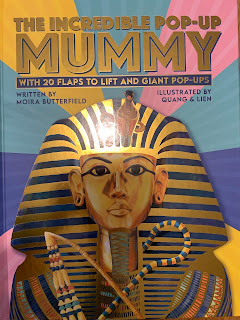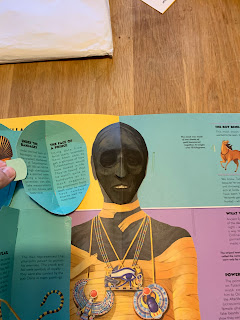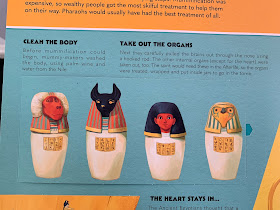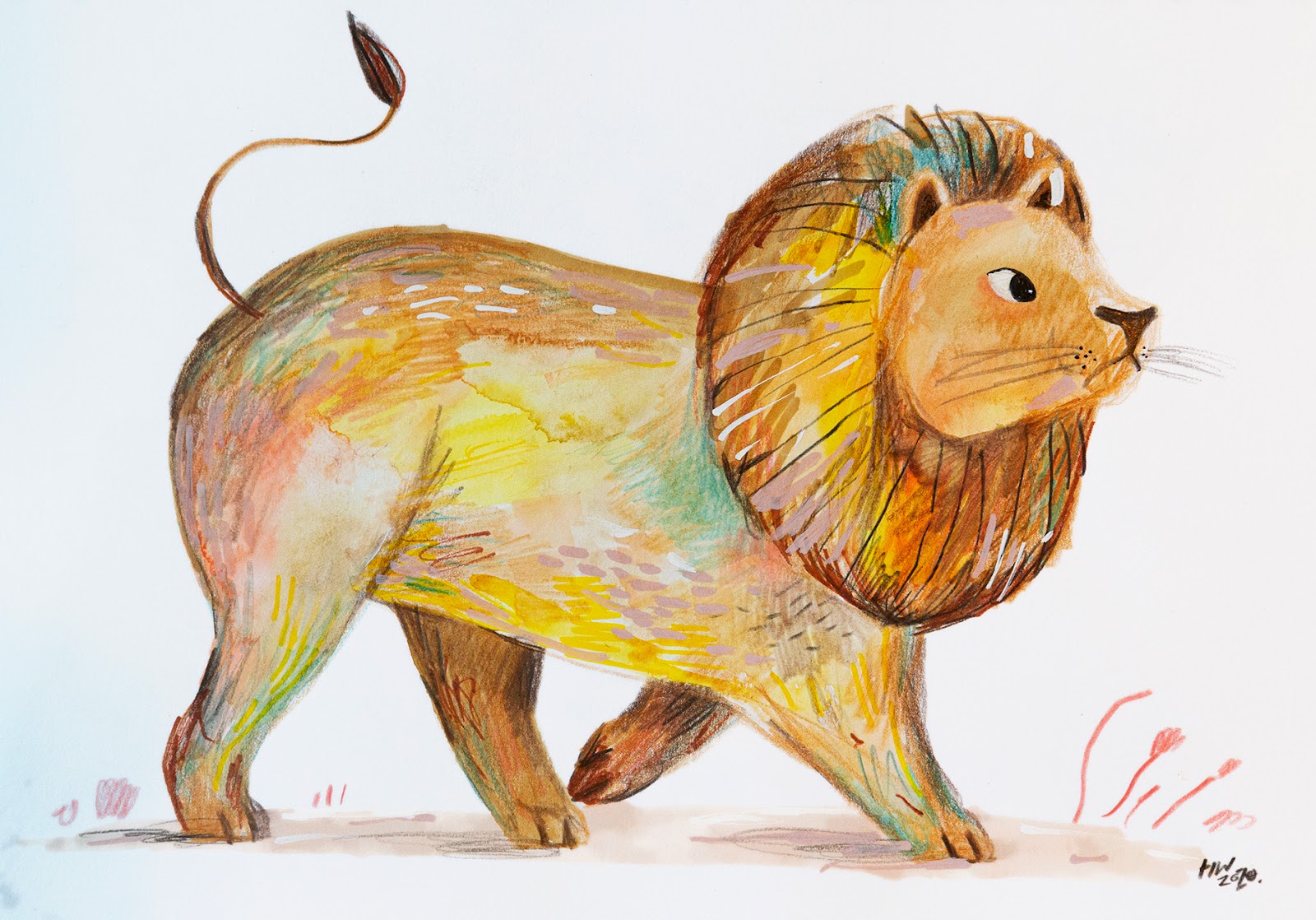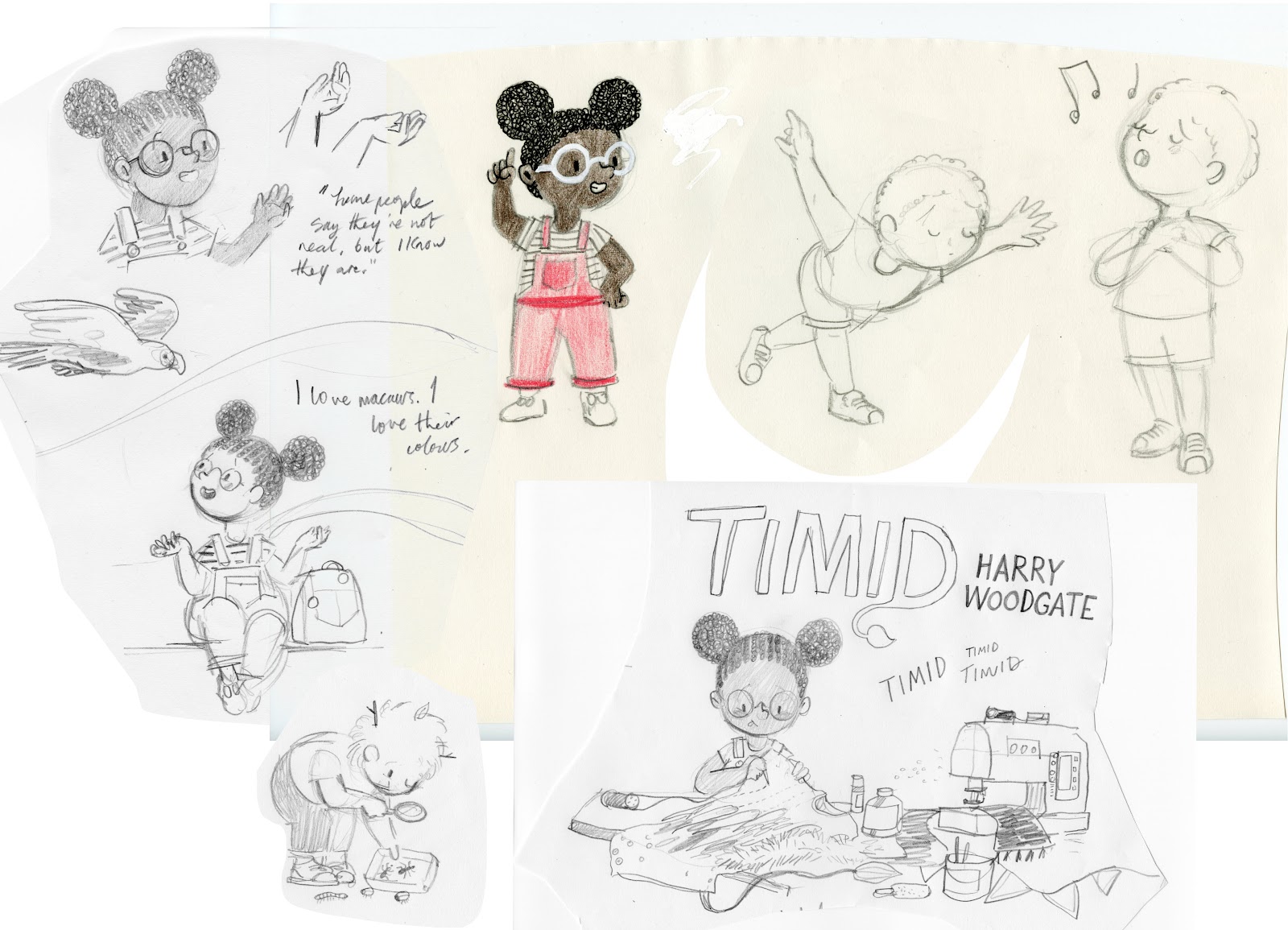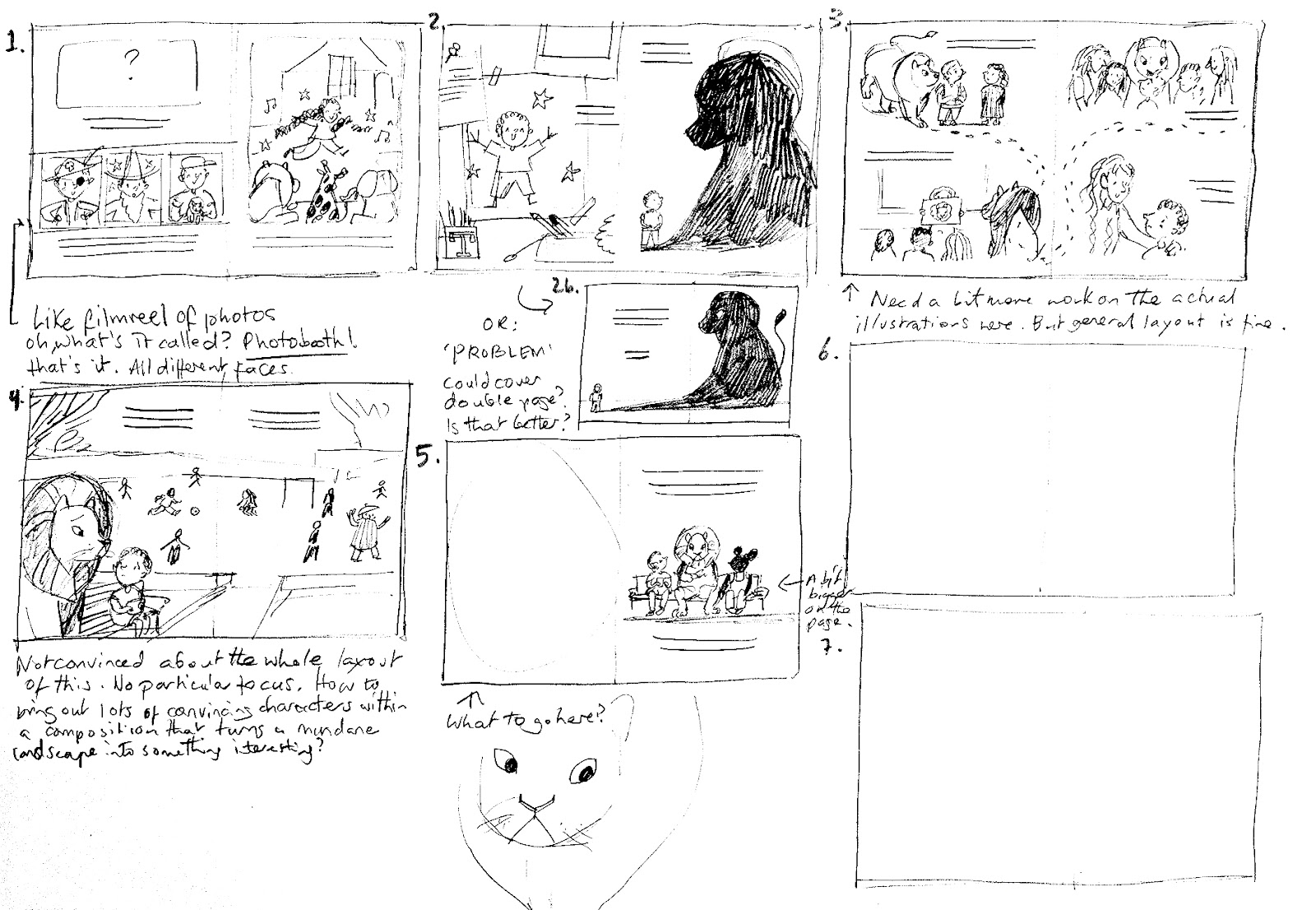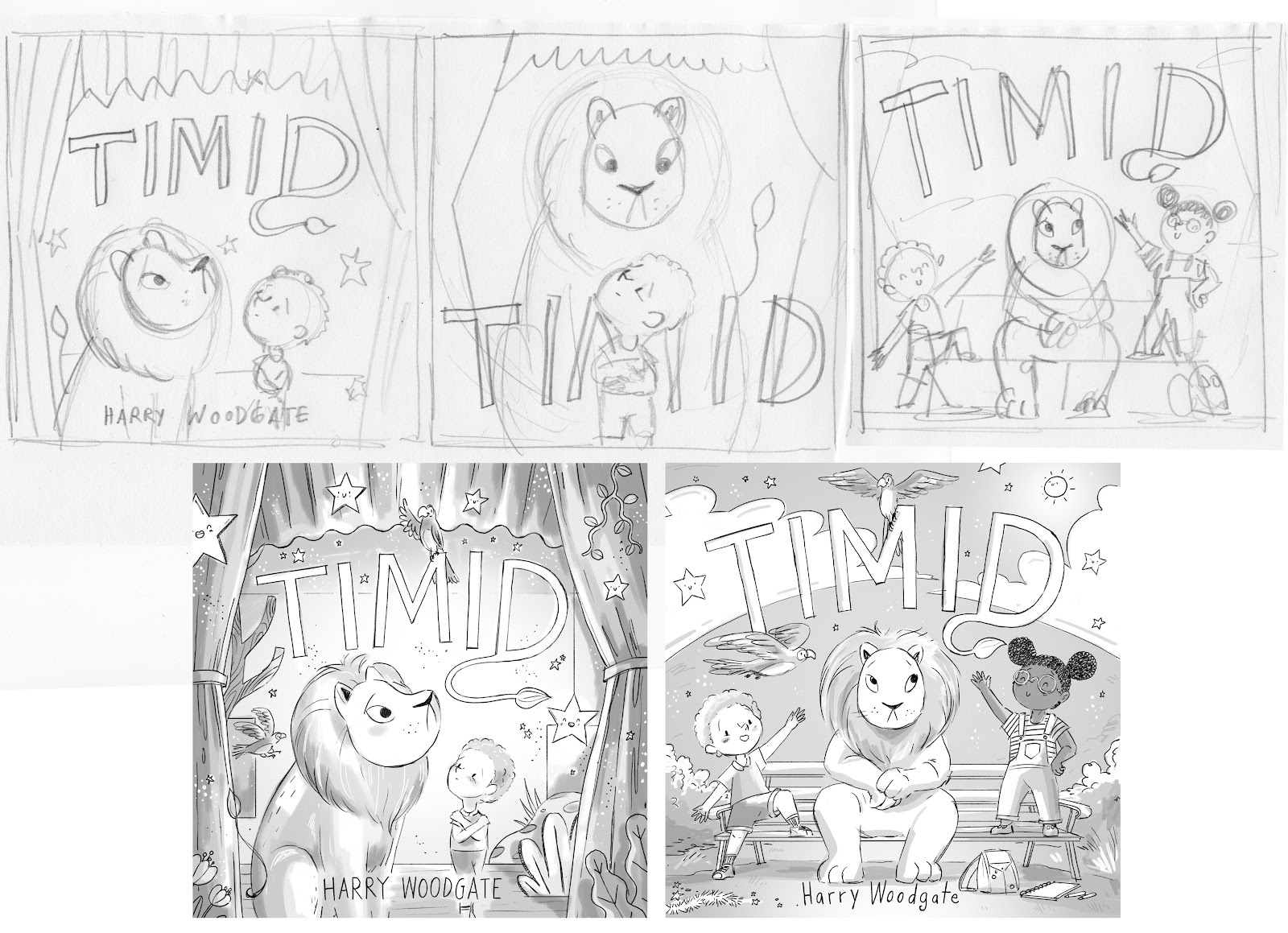We are delighted to be sharing an interview with author-illustrator, Harry Woodgate, ahead of the publication of their new picture book, Timid, which launched on 13th October with Little Tiger Press.
Dear Harry, thanks so much for freeing
up your time to answer some questions for Picture Book Den. We are really excited to be showcasing your new picture book, Timid ! Can you tell us
about it in three words?
Very big lion.
Brilliant! :-) What was your inspiration
for the story?
The idea for Timid began with a pun! It
was the week before the very first lockdown, and I was sat in the back of a
coffee shop in town with my sketchbook. I happened to doodle this big fluffy
lion, and in the weeks that followed I kept wondering how to turn it into a
picture book idea. Then the character of Timmy came into my head, along with
the phrase, “You’re so timid, Timmy!” and the rest of the book developed from
there.
Coincidentally, there is a bit of a
pun in the title of Grandad’s Camper (because Grandad is more camp than his
husband, obviously), so I want to clarify that this is not an intrinsic part of
my writing process, it’s just that I am very easily amused.
As the book came together, I felt very
drawn to the idea of presenting Timmy’s anxiety as a lion that only they can
see. When you have anxiety, it can be very hard to separate yourself from your
worries, so this felt like an interesting way of exploring that experience, as
well as allowing for some fun characterisation and humour along the way.
Well, I'd be LION if I didn't say I'm glad those ideas came together so beautifully (Sorry!) What do you hope
readers take away?
First and foremost, I hope children
enjoy the book, because reading should be fun and interactive above anything
else! If the fun I had making it shines through when reading, then that’s the
best result I could ask for.
I also hope it reaches any children
and families who will benefit from seeing an openly non-binary character in a
story, because this kind of representation is still quite rare in picture books,
especially when it’s incidental to the main storyline.
Finally, I hope Timid helps reassure
young readers that it’s completely normal to have feelings of shyness and
social anxiety, and that whilst those feelings might not ever go away
completely, you can learn to accept them for what they are and not let them get
in the way of what you want to do.


These are such important take aways and they all came across beautifully to me. I'm sure other readers will feel the same. Have you ever thought about what happens to Timmy, Nia and Lion after the story ends?
I’d like to think that they remain
good friends, and that they continue to follow their passions together. I don’t
think the Lion ever leaves Timmy, but as they grow up, I hope they learn more
and more ways to accept and work with one another.
I also have this funny thing where I
like to imagine all my characters as existing within one Marvel (or Emily St
John Mandel)-esque universe, although this is somewhat complicated by
publishing exclusivity clauses. I think it would be fun if Timmy and Nia one
day met Milly from Grandad’s Camper and they all went on a road trip together.
That so interesting! Getting all your characters together would make for a fantastic road trip! Next, I’d really love
to hear more about your process. How did working on Timid compare to
working on your debut, Grandad’s Camper. Huge congratulations on winning
the Waterstones Children’s Book Prize this year!
Thank you so much! I’m incredibly
grateful and still feel a bit amazed that it happened.
My process usually starts with a rough
first draft of the text, then thumbnail sketches for each spread, and gradually
I edit and develop and refine these until I’m ready to move on to final
artwork. Reading aloud helps me work out things like page turns and phrasing,
and making a dummy book helps to ensure there’s a nice flow and variety of
compositions in the artwork. My finished illustrations are usually a mix of
hand-painted, photographed, and digital textures which I collage together in
Photoshop.
Of course, this process is all very
collaborative. There are so many people involved in making a book and lots of
conversations go on behind the scenes to help make each story the best it can
be.
As for the differences between Timid
and Grandad’s Camper, Timid felt a lot more structured from the beginning, probably
because I had a better idea of what to expect, and what was expected of me.
Also, I began working on Grandad’s Camper in the very creative, experimental
environment of university, whereas I wrote and illustrated Timid whilst working
from home during the pandemic, so naturally that made each experience very
different and brought its own challenges.
What, in your opinion, are the most important elements of good story?
Characters whose personalities, goals and struggles feel rounded,
believable, and relatable. Worlds which are fully realised and immersive,
whether that is achieved through words, illustrations, or both. And most
importantly, a writer or illustrator who is genuinely invested in the story
they’re telling, so they can introduce the reader to things in a new and
interesting light, and leave them feeling hopeful, inspired, hungry for more.
That's such good advice. Thank you for sharing! A bit more about your practice - in a typical day, how much time do you spend writing and illustrating?
Can you describe your workspace?
I tend to work on weekdays from mid-morning, around 10-11am, until early
evening, around 6-7pm. I used to be very bad at maintaining a regular schedule,
but after enough all-nighters at university and plenty of burnout-induced
headaches, I’m much better these days at establishing healthy boundaries,
although of course it’s still very much a work in progress!
I’m very lucky to have a dedicated home studio, which is mostly
populated by books, candles, art materials and houseplants (one of which is
intent on taking over the entire room, and another of which very rudely decided
to die on me whilst I was away at a book festival). By the end of a workday,
it’s not unusual to find a small village of empty tea mugs on the desk beside
me.
Wonderfully described - your workspace has come alive in my mind! What is the best thing for you about making picture books?
I love holding a finished book in my hands and thinking, “Oh, I helped
make that!”
I love the community that exists around children’s books, and the many
lovely people I’ve met through it.
I love hearing how people relate to my books, or seeing kids really
engaged in art and reading when I’m running workshops or events.
All of which is to say, I find a sense of purpose and fulfilment in
making books, a satisfaction in knowing that they have the potential to shape
lives in a constructive and positive way, to leave an imprint on the world
which hopefully makes it better than it was before.
What about the worst thing?
Sometimes it can be very difficult to
strike the right balance between a manageable workload and financial
sustainability, and I think that’s a challenge we’re seeing quite widely across
the publishing industry which needs to be addressed. I think a constant drive
for profit and growth can burden publishing employees and freelancers alike
with too much work for too little compensation, and ultimately none of us can
make our best work if we’re burnt out! Also, I do often wish I wasn’t sat
staring at a screen as much as I am. At least with writing I can go for a walk
and record myself narrating the story, but it’s not so easy with illustrations!
What piece of advice would you give a picture book creative just
starting out?
Firstly, I would recommend getting to
know other creators in the picture book space. Having people in the same boat
who you can turn to when things get tough, or celebrate with when things go
well, makes the whole experience so much more enjoyable. Trying to get through
the trials of drafting and pitching alone is not fun, but it’s much better when
you have a supportive network of people around you.
Also, I think it’s important to lean
into a process of collaboration from the very beginning. It’s much nicer
working on books where it feels like you’re all contributing and building the
best version of a story together, and it’s also a wonderful antidote to
perfectionism. There can be such a pressure to get things right when you’re
faced with a blank page, but the reality is that every book needs work from
many hands, and I find that helps relieve some of the unnecessary expectations
I place on myself as a creative person.
Finally, and I realise this is easier
said than done, but have confidence in your own voice! It really shows when a
creator truly believes in the work they’re making, and even if it takes a long
time to get there, there will be others who share that vision.
Thank you so much for your detailed answers, Harry. I'm sure the Picture Book Denners are very grateful. Lastly, can
you tell us what’s coming next for you?
I have several new books coming out in
2023 which I’m really excited about…
Shine Like the Stars, written by Anna
Wilson, is a gorgeous, lyrical picture book exploring our connections to the
natural world. It’s publishing with Andersen in January, which is perfect
timing to brush away those post-holiday blues!
Grandad’s Pride, the sequel to
Grandad’s Camper, also publishes with Andersen in June to coincide with Pride
month. It’s been such a joy to return to these characters, and I hope this book
will allow lots of families and young people to feel seen at a time where the
state of LGBTQ+ rights unfortunately feels quite uncertain and scary.
Everything else is still under wraps
for the time being, but I’m very excited to share more when I’m allowed
to!
Fantastic! So, lots for us to look forward to then!
Harry, it's been a pleasure interviewing you. Thank you so much for letting us peek at your side of the desk and congratulations again on your newest picture book, Timid! I've had a sneaky preview look and can confirm your readers are in for a real treat. It's available now from all good bookshops.
BIO: Clare is children’s writer from Devon. She writes for a wide range of ages about a wide range of themes and has over 50 published titles. She founded the #BooksThatHelp initiative that aims to create honest emotional spaces for children through a love of reading and books.
